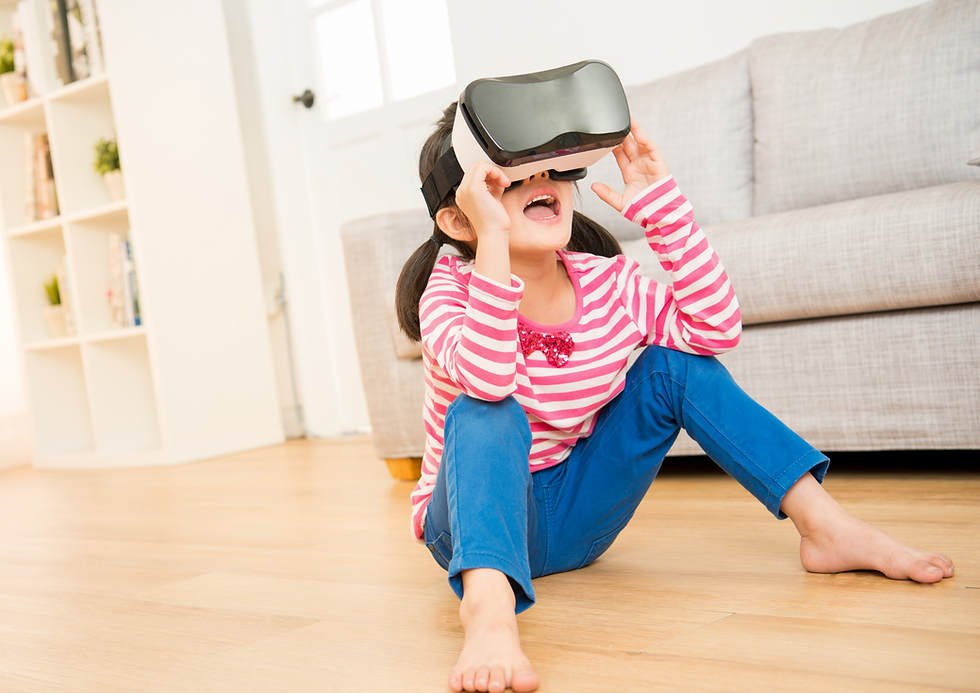The Role of Virtual Reality (VR) in Autism Therapy*
- Glenda Carnate
- Apr 4
- 2 min read

Virtual Reality might sound futuristic, but for many families, it’s becoming a real tool in supporting autistic children and adults. When used thoughtfully, VR can offer something hard to find in everyday life: a space that feels predictable, safe, and entirely tailored to someone’s needs.
A Calm Space to Practice Real-Life Moments
Many autistic individuals experience sensory overload or anxiety in everyday situations. VR allows them to enter a world where everything—from lighting to sound to social interactions—can be controlled. This safe virtual environment becomes an extension of autism therapy, offering a calm space to build skills without overwhelming pressure.
Practicing Life, One Step at a Time
Imagine your child practicing crossing a street, riding a bus, or even ordering at a restaurant—all from the comfort of your living room. VR can simulate these experiences in ways that feel low-pressure and repeatable. It’s especially helpful for building social communication, coping with transitions, or learning life skills that might be difficult to “live” the first time.
One Step at a Time
Not all autistic children or adults will enjoy using VR immediately—and that’s okay. It’s important to introduce it slowly, follow the user’s comfort level, and treat it as one part of a broader autism therapy plan. The goal isn’t to “fix” but to support, encourage, and adapt therapy tools to meet each individual where they are.
With care, creativity, and patience, virtual reality can become a valuable support in the autism therapy journey—offering new ways to connect, grow, and feel understood.
Want more resources? Download the One Autism Health app for free!
*Results may vary; please consult a professional.

Commentaires